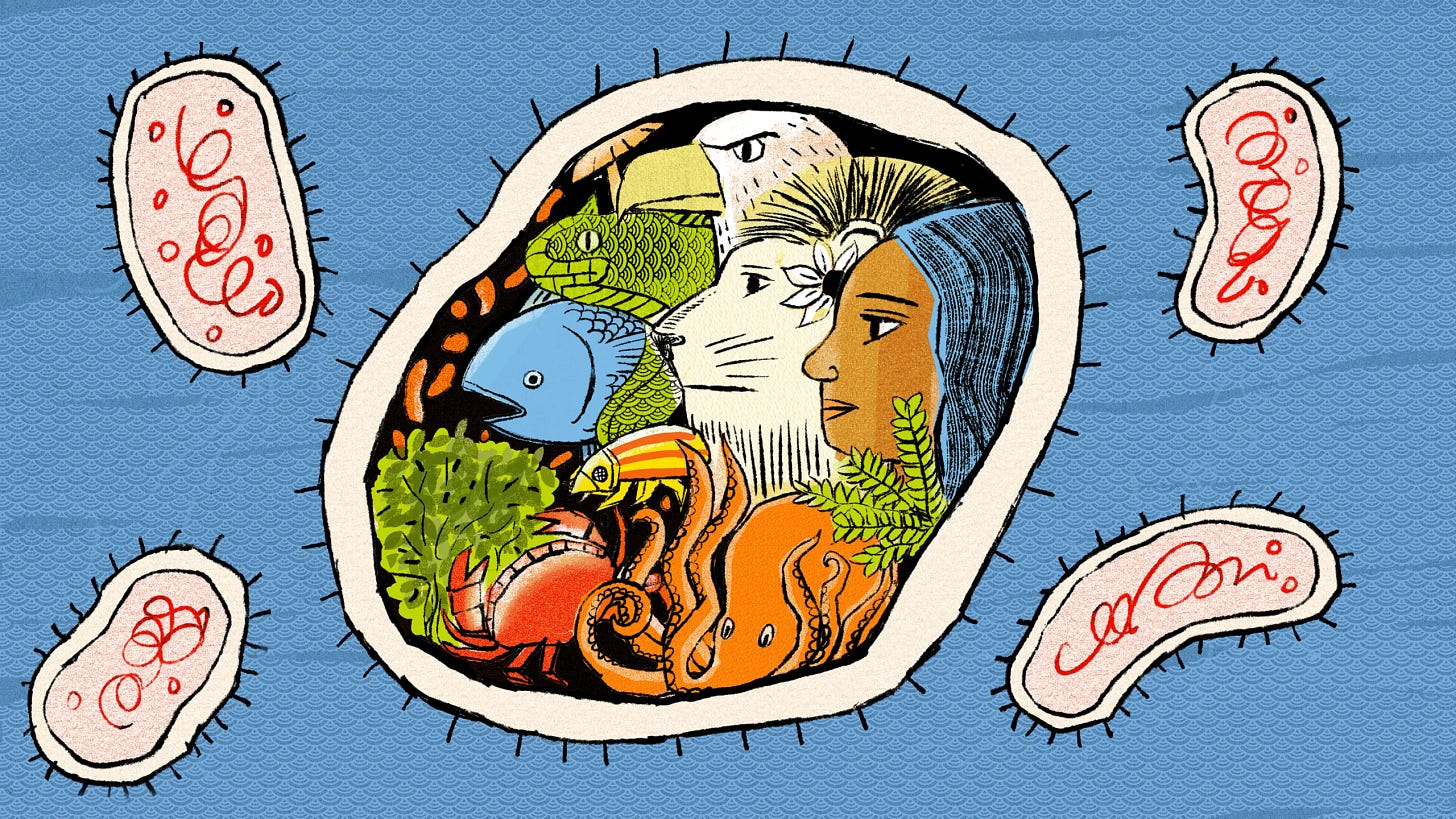20241222
A veritable horde of pokémon were also loitering near other highly sensitive national security and intelligence facilities around the nation. “People were doing dumb shit with Pokémon Go, like playing in the parking lot at Fort Meade,” the headquarters of the National Security Agency (NSA), recalled a former agency official. “Because there were apparently like some super-rare shiny pokémons or something, so people were wandering campus with their phones up.” In the Venn diagram of nerdery, there was a considerable crossover between technically inclined intelligence personnel at the NSA, CIA, and other national security agencies, and Pokémon fans. And that worried their superiors.
People: Hiring for the future. Wage collapse? Layered speeds. Blurred generational divides. Pay2getajob. Identiti(es). Gamer in residence, in hospitals. Absence society (FR).
Tech: Buying US soldiers data. Pokemon Go and the CIA/NSA.
Business: Actual reinvention of business models. Are(n)as for growth. Dermatology rise.
AI: Impact of AI on human thought. AI multi-agent changing work (PDF report). AI generated homogeneity. White House bipartisan report (&PDF). EU second draft on GPAI code. AI Action Summit in Feb in Paris.
Insights on ChatGPT adoption (and PDF). Rapid adoption of GenAI (PDF). Anthropic’s autoeval checks. GenZ use of AI.
Good enough prompts.
# A Sprinkle of Ambition
The sun dipped below the horizon, casting a golden hue across the bustling city, where Aaron found himself at the forefront of a culinary revolution. He stood in his kitchen, a cramped space that smelled faintly of burnt toast and ambition, surrounded by an array of ingredients that would make any trendy chef salivate. But Aaron had a secret weapon hidden behind the gluten-free flour: teff, the tiny Ethiopian grain that was making waves in the health-food scene.
“Is it just me,” Aaron mused to his cat, Socrates, who was not particularly interested in the philosophical quandaries of quinoa vs. teff, “or does the world suddenly think we can save it with a sprinkle of ancient grains?”^1 He had noticed the teff market projected to skyrocket from $1.5 billion to $3.5 billion by 2030, and he wanted a slice of that economic pie—preferably with a side of injera.
Meanwhile, in an office several blocks away, a group of corporate executives were sweating over the looming threat of artificial intelligence. They discussed how AI would drive economic growth, yet they couldn’t shake the feeling that their jobs might soon be relegated to history books alongside the dinosaurs and VHS tapes. “We must reinvent ourselves!” one executive exclaimed, his brow furrowed like a well-plowed field. “Innovation is key!”^2 They scribbled ideas about minimum viable products, while Aaron pondered whether a teff-based pizza could be the MVP of his culinary dreams.
As fate would have it, Aaron’s experimentations caught the eye of a tech-savvy food critic, who was busy mapping out the trending culinary arenas for the next decade. “Food is no longer just about taste, it’s a multi-sensory experience!” he proclaimed, as he sipped on a teff-infused latte. “Brands are shifting, and we need to appeal to the kidults out there!”^3 Aaron raised an eyebrow. Kidults? He could barely keep up with the adults in his life, let alone a generation of oversized children.
Back in the kitchen, as he prepared his teff pizza, he couldn’t shake the feeling of being part of something larger. The many-worlds interpretation of quantum mechanics popped into his head, and he wondered if somewhere in a parallel universe, he was already a famous chef, hosting teff cooking shows and being interviewed on talk shows about the benefits of ancient grains.^4 “What if I’m just a version of myself,” he muttered, “who missed the memo on how to make it big?”
Suddenly, a notification pinged on his phone: “Location Data Breach! National Security Alert!”^5 Aaron chuckled darkly, imagining an army of food critics swarming his kitchen, using data gathered from an app meant to track the best grain bowls in town. “At this rate, I might have to start serving my pizza with a side of bodyguards,” he quipped to Socrates, who couldn’t care less.
As he finally slid the teff pizza into the oven, Aaron reflected on the layers of complexity that shaped his life and the world around him. AI was here, and while it threatened jobs, it also opened doors to creativity. “Maybe I should treat AI like a sous-chef,” he decided. “Not a master, just a partner in culinary crime.”^6
With a whirr and a beep, the oven turned off, and as the smell of freshly baked teff pizza filled the air, Aaron felt a surge of hope. Perhaps in this rapidly changing world, where national security and culinary arts intersected in the most absurd of ways, he could carve out a niche that was uniquely his. After all, if life could be as layered as a good lasagna, then why not be the chef who dared to blend tradition with innovation?
---
^1 Note to self: Must remember to explain to Socrates the importance of gluten-free diets... or at least the concept of them.
^2 If only they realized that reinvention often means a new coat of paint on the same old office furniture.
^3 Kidults: a term that sounds like a character from a late-night cartoon, but is actually just adults who refuse to grow up.
^4 Parallel universes: where I am probably a millionaire with a teff farm and Socrates is a contemplative guru.
^5 Because nothing says “national security” like a pizza with questionable toppings.
^6 Just don’t let it take over the kitchen entirely; we wouldn’t want a pizza that runs away with the spoon.


